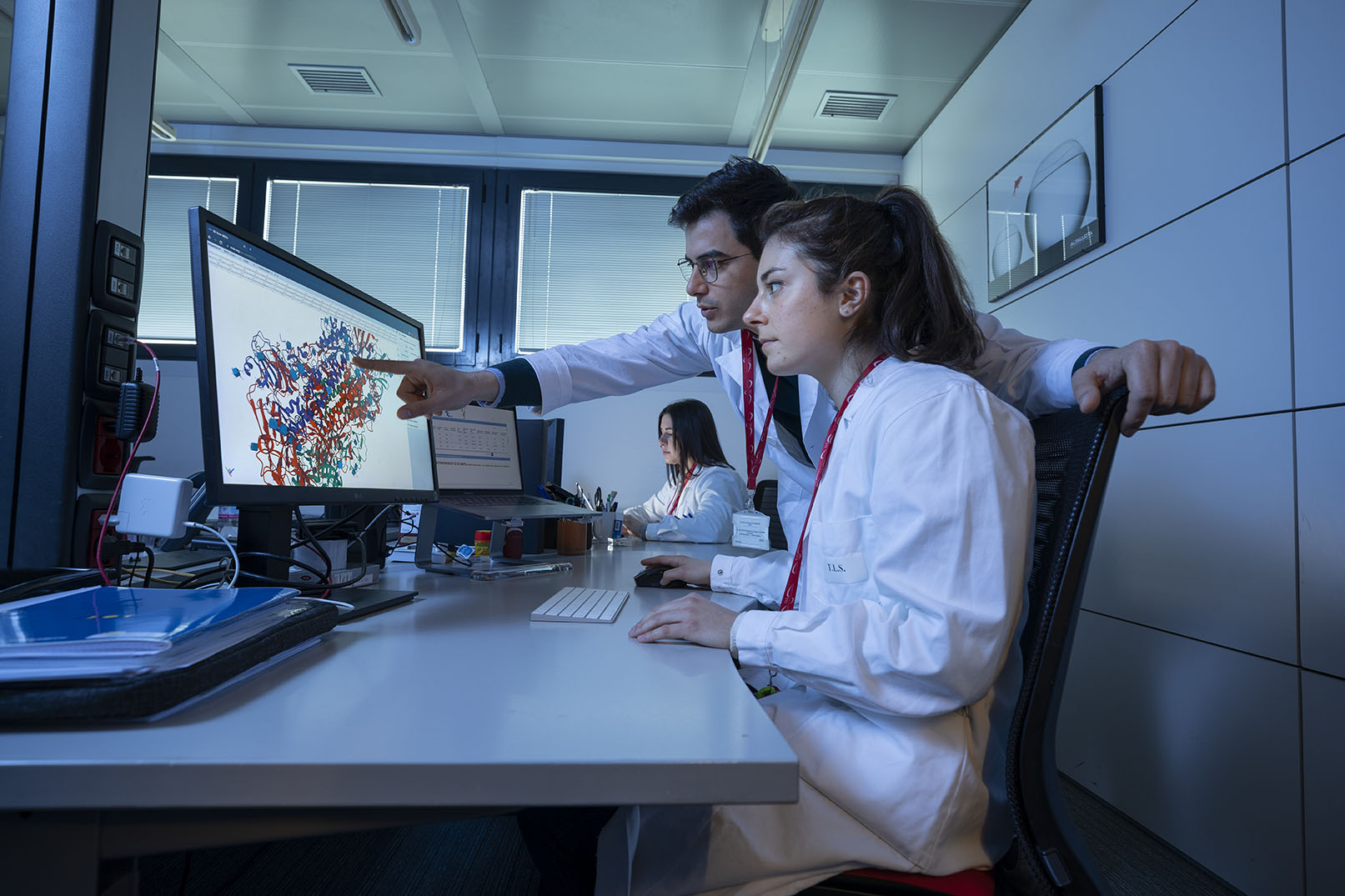In recent years, the increasing commitment of TLS to in-house research has produced a significant growth of the scientific contribution of the foundation’s researchers

ERC ADVANCED GRANT VACCIBIOME
General Description
The project aims at investigating the role of gut microbiome in determining the efficacy of cancer vaccines. The research project, awarded to Prof. Guido Grandi, University of Trento, has a term of five years and benefits from 2.5 million euros of funding. TLS hosts some labs and scientists and contributes to the development of novel cancer vaccines and the analysis of immune responses in different animal models.
Research Activities
The project intends to shed light on the interplay between cancer immunity and gut microbiome as a way to optimize personalized cancer vaccines and immunotherapy. The project originates from two milestone discoveries. First, to be effective cancer immunotherapies must target CD4+/CD8+ T cell neo-epitopes, which originate from tumor mutations. Second, the gut microbiome influences the effectiveness of anti-PD-1/PD-L1 antibody immunotherapy both in animal models and in humans. We also recently showed in a mouse model that oral gavages with Bifidobacterial cocktails improved the therapeutic power of neo-epitope-based cancer vaccines. How microbiome affects anti-cancer immunity has not been fully elucidated yet and a deep understanding of the underlying mechanisms has the potential to substantially improve cancer immunotherapy. The ultimate goals are: 1) to provide new criteria for neo-epitope selection in personalized cancer vaccines, 2) to develop prognostic tools based on microbiome analysis, and 3) to define microbial species to be used as immune-potentiators in patients undergoing cancer therapy.
Contacts:
Principal Investigator: Prof. Guido Grandi
Team at University of Trento, CIBIO:
Michele Tomasi, PhD
Ilaria Zanella, PhD
Riccardo Corbellari, PhD
Lorenzo Croia, PhD student
Team at TLS:


